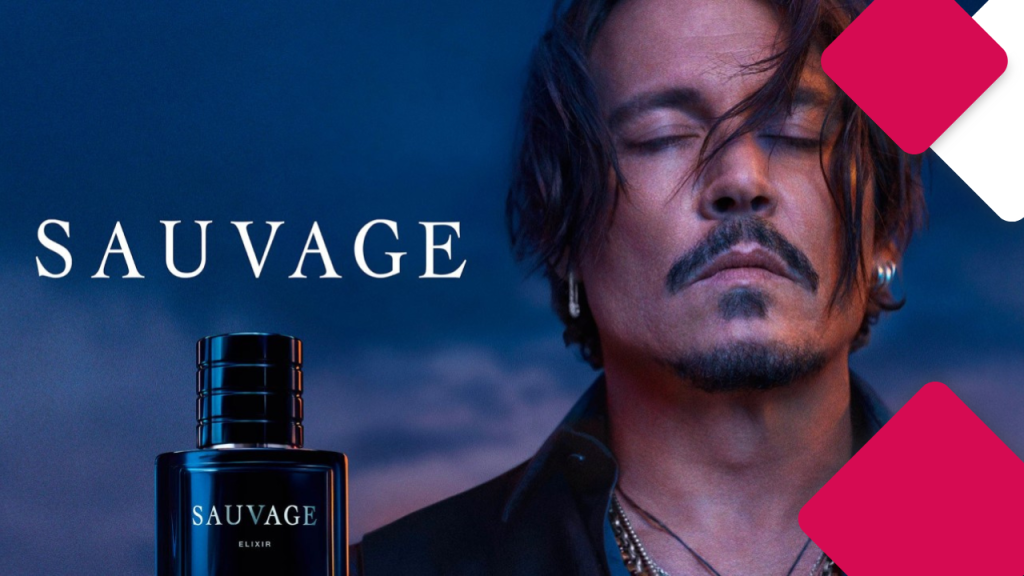Let’s be honest—if Johnny Depp tells you a fragrance is irresistible, are you really going to question him? The man could sell cologne to a perfume factory with just a smoldering glance. But it’s not just his chiseled jawline and effortless cool that make people rush to buy Sauvage—it’s psychology at work.
Celebrity endorsements have been shaping our buying decisions for decades, but what exactly makes them so powerful? Is it the star power, the glamor, or something deeper going on in our brains? Spoiler: It’s all about psychology, and we’re all falling for it.
The Halo Effect: When Fame = Authority (Even When It Shouldn’t)
One of the biggest reasons we trust celebrity endorsements is something called the Halo Effect—a psychological bias that makes us assume that if someone is amazing at one thing, they must be amazing at everything.
So if a celebrity is attractive, successful, and charismatic, our brains automatically assign them other positive qualities—like good taste in cologne, expertise in fashion, or knowing which luxury car is “the best.” Suddenly, a regular old product transforms into a “celebrity-approved” must-have.
And just like that, we’re convinced that a spritz of Sauvage will have us walking through the desert with the same devil-may-care allure as Johnny Depp.
Why We Trust Celebrities (Even When We Know Better)
Deep down, we know that celebrities aren’t dermatologists, nutritionists, or sneaker scientists. So why do we still take their word as gospel? Because our brains love aspiration, emotion, and authority—three things celebrities naturally bring to the table.
1. We Want to Be Like Them
Celebrities have the it factor—the wealth, the looks, the jet-setting lifestyle. Even though we know we can’t trade places with them, buying their favorite products makes us feel like we’re getting a little slice of their world.
2. They Seem Like Experts (Even When They Aren’t)
LeBron James endorsing basketball shoes? Makes sense. But LeBron James endorsing a wireless internet router? Our brains still assume he knows what he’s talking about. It’s why celebrity influence extends way beyond their actual expertise.
3. We Feel Like We Know Them
Celebrities—especially in the social media era—feel weirdly familiar to us. We follow their lives, watch their interviews, and hear their personal stories. That emotional connection tricks our brains into thinking they’re trustworthy, even though we’ve never met them.
Why Brands Love Celebrity Endorsements (And Why It Works)
For businesses, slapping a famous face on a product isn’t just about star power—it’s a shortcut to instant credibility, reach, and emotional appeal.
✔ Brand Credibility – A celebrity endorsement fast-tracks trust and makes an unknown brand feel legit. ✔ Massive Exposure – Celebs have millions of followers, meaning your product gets seen by more people—fast. ✔ Emotional Connection = More Sales – People buy based on feelings, and celebrities add emotion to a product before anyone even tries it.
The proof? Studies show that celebrity-endorsed ads perform 20-30% better than non-celebrity ads, and brands using famous ambassadors often see a boost in sales within months.
When Celebrity Endorsements Go Horribly Wrong
Of course, not every endorsement is a slam dunk. Sometimes, they backfire—spectacularly.
🚩 If It Feels Fake, It Fails. If a celebrity endorsement is forced, cringey, or just plain unbelievable, people won’t buy it—literally. Consumers are savvier than ever and can sniff out an inauthentic ad a mile away.
🚩 When Scandals Strike… So Does Brand Damage. The problem with tying your brand to a single person? That person is human—and humans mess up. If a celebrity gets caught in a scandal, brands have to scramble to distance themselves before it damages their reputation, too.
🚩 Overexposure = Walking Billboard Syndrome. When a celebrity endorses too many brands at once, their influence loses credibility. If they love one sneaker brand today, another tomorrow, and a third next week… it’s clear they’re just cashing checks.
How to Use Celebrity Endorsements the Right Way
If you’re a brand thinking about using a celebrity ambassador, throwing money at a famous face isn’t enough. The smartest endorsements are:
🔹 Authentic – The celeb should actually align with the brand. (Serena Williams endorsing athletic wear? Makes sense. Serena Williams endorsing a fast-food burger? Questionable.)
🔹 Long-Term – The best endorsements don’t feel like one-off ads—they feel like genuine partnerships.
🔹 Transparent – Consumers respect honesty, so disclosing paid partnerships isn’t just the law, it’s good business.
Does a Celebrity Really Make a Product Better?
Celebrity endorsements can skyrocket brand awareness, sales, and credibility—but they aren’t a magic formula for success. A bad product is still a bad product, no matter how famous the person promoting it is.
So next time you feel yourself reaching for something just because a celebrity is holding it, take a second to ask:
“Am I buying this because I love it, or because their perfect smile just convinced me I need it?”
If the answer is the latter, congrats—you just got hit by the Halo Effect. Welcome to the club.

